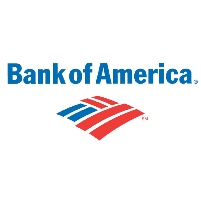Bank of America Drastically Cut Small Business Loans after Bailout
Sunday, July 26, 2009

According to data compiled by the Service Employees International Union (SEIU), Bank of America isn’t quite the friend of small business it claims to be. The overwhelming majority of loans made through the Small Business Administration are called SBA 7(a) loans, and they are used to finance operating expenses. During FY 2007 (October 2006-September 2007), BofA gave out 10,878 SBA 7(a) loans worth $336 million. But during the 12-month period between May 2008 and April 2009, those numbers plummeted to just 484 loans worth $20 million. During this same period, Bank of America received $52.5 billion in taxpayer bailout funds.
Despite being named the top lender by the Small Business Administration 10 years in a row, BofA wasn’t all that generous during that time. The ranking was based on total loans issued, which belied the fact BofA lent considerably less money to small businesses than many other banks. In FY 2008, the average SBA 7(a) loan was $182,492, but BofA’s average loan was only $31,032. The real #1 lender for each of the last nine years was CIT Small Business Lending Corporation.
The SEIU also notes in its report that the bank has shifted its lending opportunities for small businesses by giving out more “Express loans,” which are smaller and have a higher rate of default, and credit card loans. According to the report, BofA has even hampered the ability of smaller banks to resume lending by demanding that banks that received TARP money pay off the credit lines they had with Bank of America.
-David Wallechinsky, Noel Brinkerhoff
Small Business Lending at Bank of America (Service Employees International Union) (PDF)
- Top Stories
- Unusual News
- Where is the Money Going?
- Controversies
- U.S. and the World
- Appointments and Resignations
- Latest News
- Trump Orders ICE and Border Patrol to Kill More Protestors
- Trump Renames National Football League National Trump League
- Trump to Stop Deportations If…
- Trump Denounces World Series
- What If China Invaded the United States?






Comments